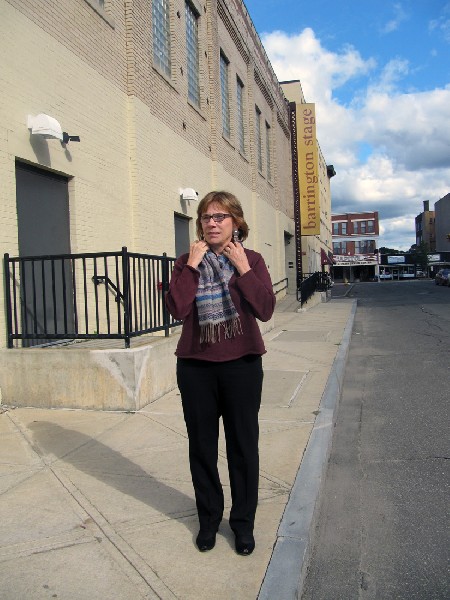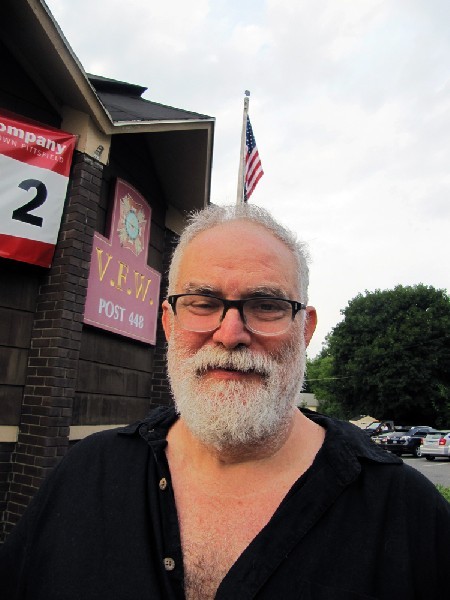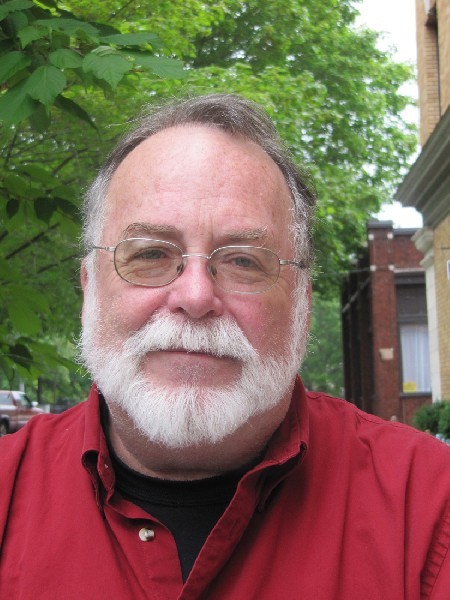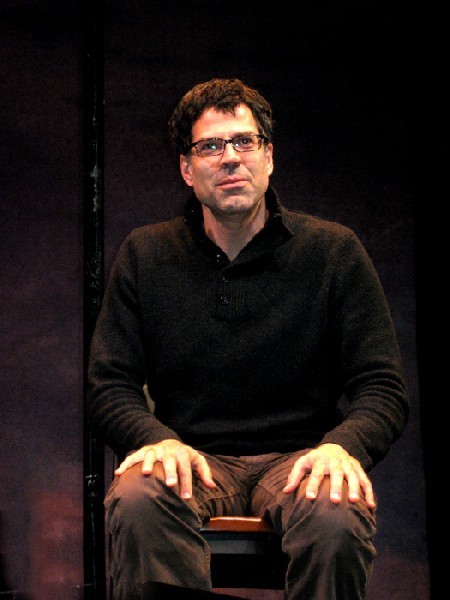Julianne Boyd of Barrington Stage: Two
Planning Several Seasons in Advance
By: Julianne Boyd and Charles Giuliano - Oct 25, 2011
Charles Giuliano You appear to have a well formulated template for a successful season. There is that pre season Second Stage production in May, like Zero Hour which was a great success and got the juices flowing. Then you launch the high season in June building toward the wider audience that starts coming to the Berkshires with the Fourth of July. You always attempt to front load with a popular musical like Guys and Dolls which was such a hit this year. That helps to put money in the bank to finance the next shows. But I wouldn’t call the musicals Straw Hat summer fare.
Julianne Boyd I don’t think I could do Crazy for You or Forever Plaid. There are some things that just don’t interest me. Guys and Dolls has a brilliant book and a great score and it’s funny.
CG Sweeney Todd (2010) was hardly a sure thing. There were risks involved in doing such a dark musical. Compared to the broad appeal of West Side Story and this coming summer you will open with Fiddler on the Roof. They just seem like programming no brainers. But then you build the rest of the season with other elements.
JB I try not to repeat those elements. I’m trying not to do the pithy social drama second next year.
CG I like that. Pithy Social Drama. What does that mean?
JB Something that I and the audience can really bite into. Something we want to talk about when we leave the theatre. Pithy Social Drama is just something off the top of my head. But it’s not The Whipping Man. I wouldn’t call that a Pithy Social Drama. Maybe Going to Saint Ives a bit.
CG What would you call Whipping Man?
JB It’s a historical drama. In Mark (St. Germain’s) work he often takes characters from history. I did my degree in theatre history so I am interested in how the social meets the historical.
CG Barrington is a regional theatre, second tier, seasonal. You are largely dependent on a summer audience.
JB We are going six months now.
CG In high season you appear to be bucking the norm. When you plan plays do you calculate the appeal to a middle aged and elderly visiting New York audience?
JB No. I don’t do that.
CG That’s your audience. How about for Asher Lev (2011)? Was there anyone under 65?
JB I was there. I don’t play it safe on purpose. We do four plays on the Main Stage and four on Stage Two. I could just throw darts and look at a book of plays and put them up there. Like, oh yes, I could do that Noel Coward. In any given year there are just certain subjects that interest me. I have to live with a play from when we announce it in December through June and July. It’s a nine months process. You have to really love that work. Discuss it with your director. With our Board and audiences we have developed them through all these years to love challenging pieces. Often what they come here for is that challenging work.
For a while we were known as the theatre that does musicals.
CG You did three this summer.
JB They say it’s the theatre that does good musicals or great musicals. But they also do. Now you hear that “but” which I like. They also do serious plays. I wouldn’t call Zero Hour a serious drama but there were parts of it which were serious. When I plan the program I don’t think my audience is a certain age or something. I think of what interests me and would it interest them.
CG Fiddler on the Roof?
JB I’ve been trying to do Fiddler for three years.
CG So who’s going to come to that?
JB It will appeal to families. They will bring their kids. I think it will be a family show and we will have a lot more kids in the theatre. We had a lot for Guys and Dolls and West Side Story. Of all the ones we’ve done the ones that brought kids in were South Pacific and West Side Story. Fiddler could top them all. It’s about a man that has five daughters and he doesn’t know what to do with them. He doesn’t know how to handle them. He changes and adapts. It’s about a family and a country in transition. People and families feel they are in transition now. It’s also about the immigrant experience. The reason I love it is that it has a very wide base. And I’m hoping that I can attract a young audience. Best of Enemies brought us a young audience. A really notably younger audience which I loved. We’re doing four student matinees for Berkshire County youth.
CG With Christopher Innvar and Mark St. Germain you have built a company around go to people. They are the spokes of a wheel that feed into you.
JB Each one is different of course. Being an artistic director is a lonely job. You are supposed to know all of these plays. It’s a job where people expect you to know everything. They expect you to know every play they’ve ever talked about. They expect you to read every play they submit to you. My uncle’s friend’s next door neighbor wrote a play and will you read it? Between reading plays and going to see plays how many plays can you actually see? How many plays can you read? Then you have to make decisions by a certain time. There are people with whom I have the same theatre aesthetic. What I’m looking for in a play. What I want to see on the stage. What excites me. Is the same as the people I’m closest to. Bill Finn runs the musical theatre lab so he’s a brilliant composer and lyricist. He often introduces to me and talks about new musicals. Chris Innvar is a brilliant actor.
CG And now director.
JB I started working with him in 2003 and from the first day of rehearsals it was like (snaps fingers) we connected. It would be “how about” and “yeah I was thinking about that.” We could start and finish sentences with each other in the rehearsal room. And we both take chances. Trying to define that character, moment to moment, and where that character goes. We work in the same way and have the same work ethic.
Mark St. Germain is someone whose work I have loved since 1980.
CG He credits you with having been in the first phase of his work.
JB Right at the beginning and we’ve remained friends through it all. We would go in different directions and then come back and work together.
CG How many productions have you done together?
JB A lot.
CG Have you done Henry and Tom?
JB I produced that for Berkshire Theatre Festival. I was there. I was the producer for Camping with Henry and Tom.
CG Would you every do it for Barrington?
JB Mark just asked me to read it. So I’m going to read it again. I haven’t seen it for awhile. Obviously for many years. I originally directed and produced The Collyer Brothers. I did Camping with Henry and Tom at BTF which then moved on to New York. We did Ears on a Beatle which means John Lennon. It was about an FBI agent assigned to watch John Lennon. Another play was The God Committee which was about organ donors. A committee in a hospital that decides on someone’s life. We did another production on The Collyer Brothers. They lived in a New York town house for twenty or thirty years. They never went out except at night to scavenger. They had stacks of newspapers and dead animals. Mothers used to say to their kids “Your room looks like the Collyer Brothers.” We did a reading of a play Kiss of the Moth which became Mrs. Lincoln’s Séance which we did last summer. So we’re talking about maybe ten plays.
CG That’s real depth.
JB It is and Mark is one of the few playwrights I know who can sit in a rehearsal and I’ll say to him “Do you think that line works?” He’ll go “Wait one second” and then “Try this line.” There’s no block. No mental block. He is not ego driven. He is there to make it all work for the actors and director.
CG That’s quite a tribute.
JB He’s just a very special person. He’ll call me now and then and run four or five ideas by me. I’ll say "Yeah I like this one but I don’t like that one.”
CG He told me that he advises you on aspects of putting together a season.
JB We’ll be sitting through a tech rehearsal for Best of Enemies and I’ll say “How about that play” and he’ll go “Uh. I don’t like that one. How about this one?” He’ll suggest or send me a list of plays. I’ll say I’m looking for a three character play for Stage Two. Or how about women’s roles? He’s very well read and will suggest a list of plays. I’ll look them up and I may know two thirds of them. I may look at a couple more. I need people to feed me plays.
I just had lunch with Mark Dold in the city. He’s in Freud’s Last Session. He first worked here with Mark in Cyrano. We talked about plays we should do. Not necessarily for this year but in the future. The associate artists are important but there is also another larger group. I always want to know what Mark Dold thinks. He knows the kind of plays I like. Renee Lutz my stage manager for 30 years will often suggest something. Charlie Siedenburg (PR) suggested Asher Lev. He will say how about this or that.
When I say it’s a lonely job I mean you can’t just come up with every play yourself. Occasionally I’ll go to an actor. Mark Dold, Chris Innvar and I used to get together at the end of every season. They worked together for so long here. Before they would leave they would put in three or four plays they would like to do for the following year. It was just fun. I would go to the dressing room and poke my head in. They would say “Hey we just thought of a couple more plays.” It’s fun and I like to stay open to people’s suggestions. If not this year next year. I often read plays and think I can do that in two years or three years. I try to think in terms of two years at once.
I’ve wanted to do Fiddler for a long time. How am I going to top Guys and Dolls? How am I going to equal it? How am I going to get that excitement? If only I could get Fiddler.
Part One





